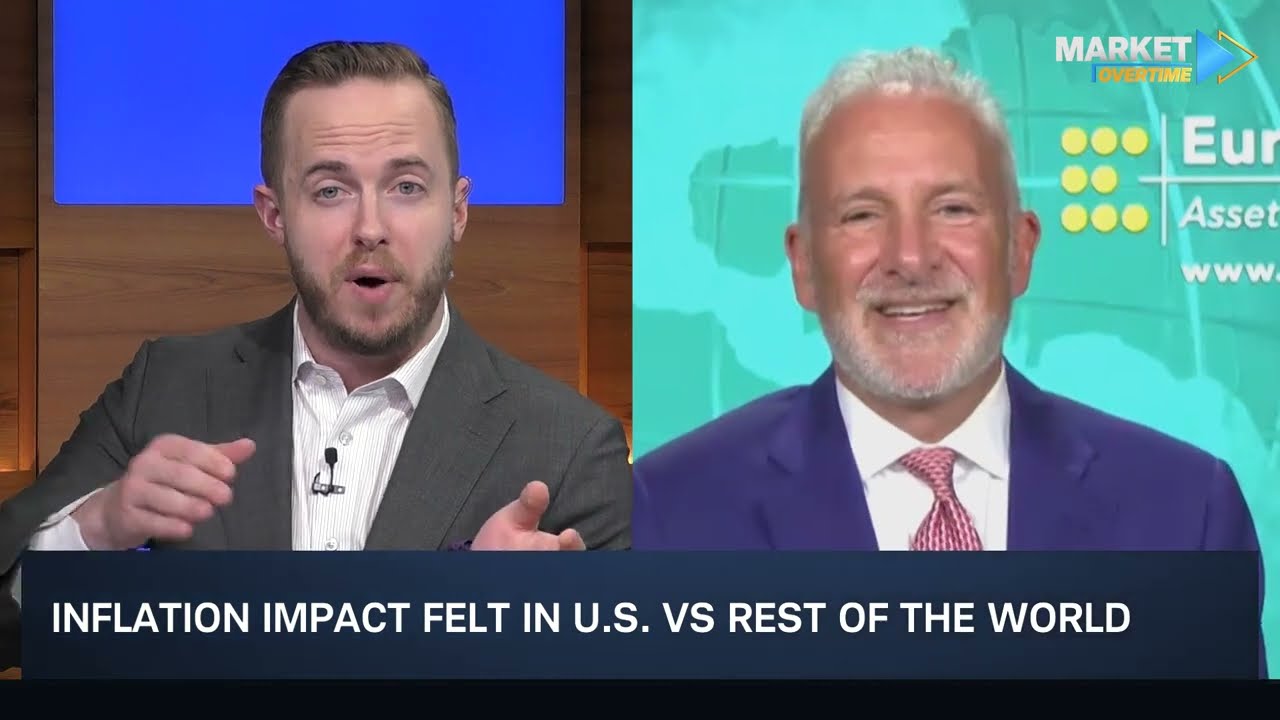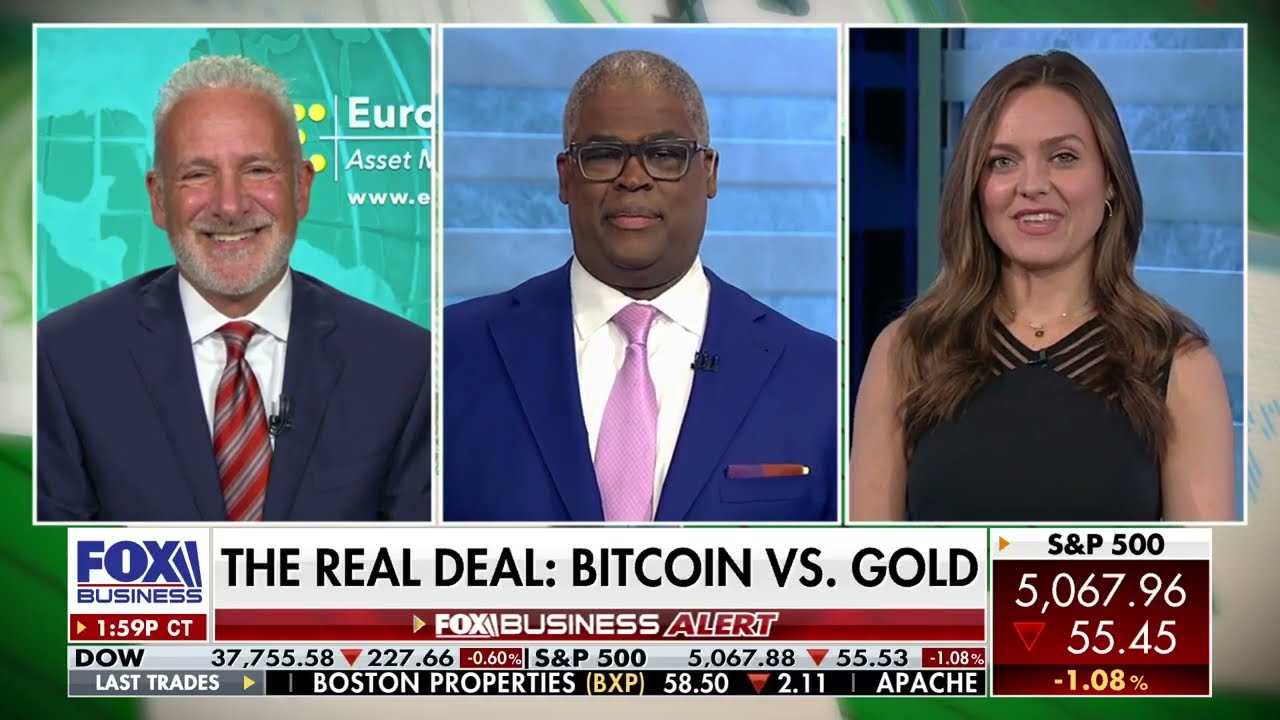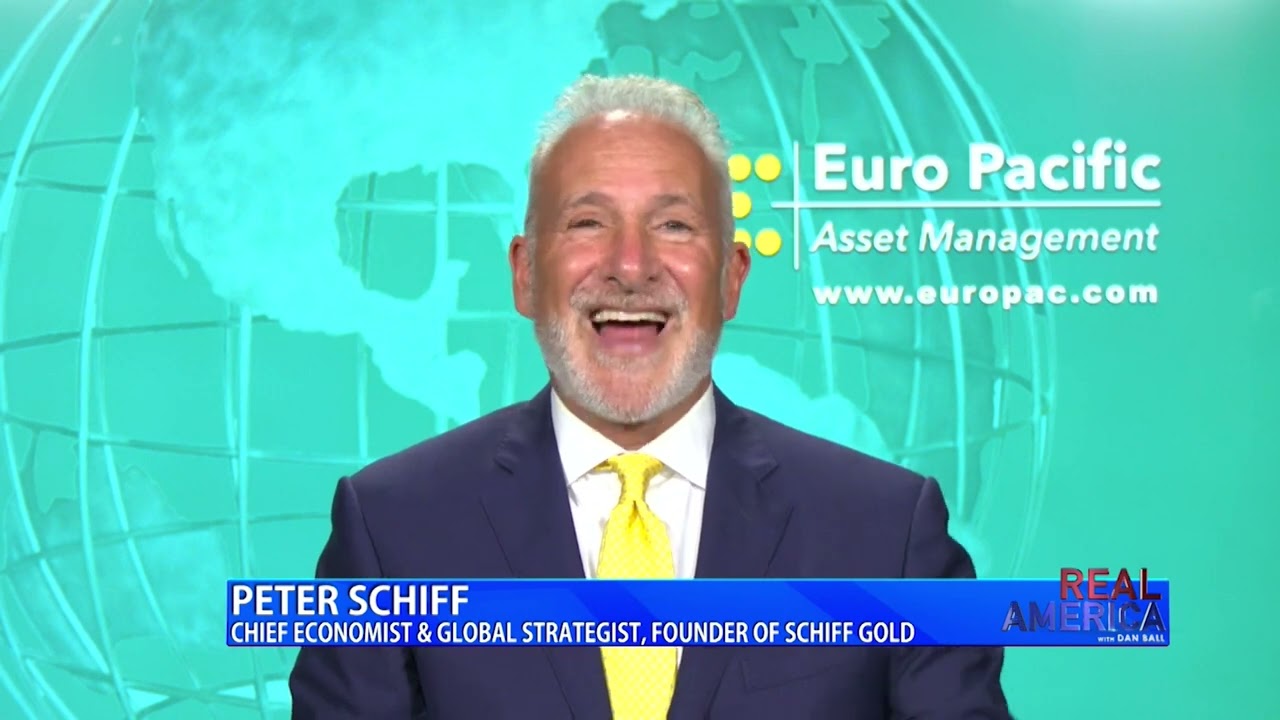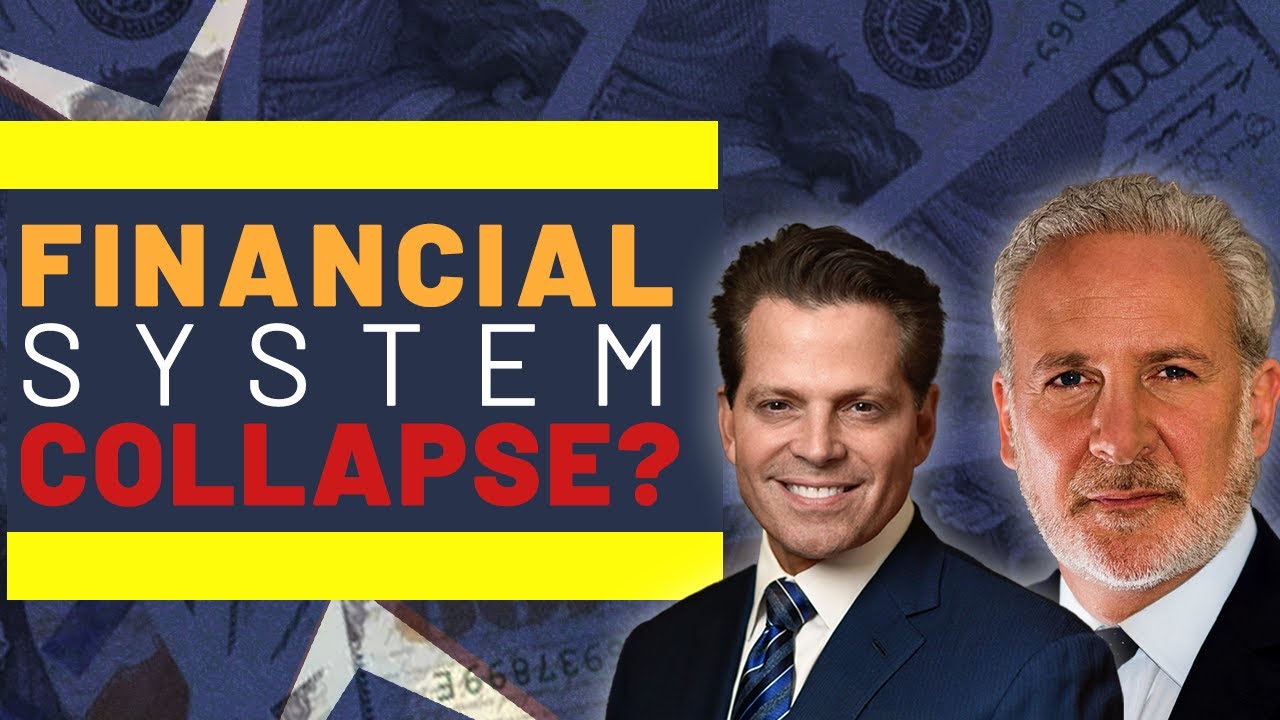Peter Schiff Talks Bitcoin and Gold with Ivan on Tech
Peter Schiff recently appeared on Ivan on Tech for a wide-ranging interview. Ivan and Peter talked cryptocurrency, gold, government debt, fiat currency, the dollar and more.
Ivan is one of the foremost experts on cryptocurrency. He is an international speaker, blockchain educator, software developer and data scientist.
Ivan and Peter don’t see eye-to-eye on everything, but they did manage to find some common ground. If you are interested in cryptocurrencies and gold, you will find their friendly debate both entertaining and informative.
Highlights from the Interview
Early in the interview, Ivan asked Peter to describe the economy for a 5-year-old.
To a 5-year-old? I don’t know. Maybe it’s because all we eat is ice cream and cupcakes, and we don’t eat anything healthy. You know, basically, the problem is debt, the problem is excess consumption, the fact that we just continue to borrow money to buy imported products that we can never afford to repay with legitimate exports. Politicians continue to promise everything to voters so that they can keep getting reelected, but none of these promises can be kept and the debts continue to pile up. The problem with the global economy is they continue to finance the debts. They continue to loan money to Americans that Americans will never repay. The continue to pretend these worthless IOUs are legitimate assets. So, you have an entire monetary system that is underpinned by a dollar that is ultimately going to collapse. And all these fiat currencies, rather than being backed by legitimate money, which would render them legitimate currencies – rather than backing currencies by gold – they back currencies with dollars which themselves are backed by nothing.”
That led to a deeper discussion of debt. Peter pointed out the problem is the US doesn’t have the money to pay off all the debt it has piled up, at least not in a legitimate way. It will have to print money, and that will collapse the dollar. People will get their money back, but they won’t be able to buy very much with it.
From there, Peter and Ivan discussed the role of gold. Peter emphasized that gold is money. Paper money is fine if it is backed by gold. But when you start printing more money than you have gold to back it up, problems start.
I advise people to own gold because I do believe that gold will be remonetized, that this monetary experiment is going to end in failure, that the world is going to go back to the system we were on prior to Nixon taking us off the gold standard in 1971 … I think we’re going to go back to what existed pre-Bretton Woods where each country is going to back its currency by gold. They’re not going to back their currency with somebody elses currency. They’re going to back their currency with real money. To do that, the price of gold is going to go much higher. “
This moved the discussion into the realm of cryptocurrency. Ivan pointed out that with cryptos, we can now transfer value across the internet. Cryptocurrencies cannot be replicated. They can’t be copied. Their supply is fixed. Ivan asked, “What is the main reason you don’t see Bitcoin as digital gold and instead you call it fool’s gold?”
You say you can transfer value. What you’re not transferring is value but the perception of value. I mean, the Bitcoin itself does not have any useful value the way gold does. I mean, there are things I can actually do with gold even if it’s not money. There are actually things that it can be used for. So, if you just have a Bitcoin and you’re just going to use it to exchange with somebody else, there’s nothing you can do with it by yourself.”
Peter also pointed out that gold is scarce because of its unique properties. “Gold is gold.” Nothing else can be gold. While there are limits on the number of Bitcoins, there isn’t any limit on the number of cryptocurrencies in general.
You can have an infinite supply of digital currencies that are identical in what they can do. In fact, a lot of the alt-coins that have been created are actually superior to Bitcoin in their ease of use, or their cost of use, or the speed of the transactions. And so, the supply there is endless.”
Peter suggested one way a cryptocurrency might work is if it is backed by gold.
There is a history of privately created currency backed by real money, and so you could certainly do the same thing by a private party issuing a digital currency that was also backed by gold. In fact, that would work much better.”
Peter said in effect, right now people are trying to create money out of thin air with cryptos and that eventually, this approach will implode.
Ivan agreed that there is a great deal of speculation in the world of cryptos and conceded that there may be a bubble that will burst in the future. But he took issue with Peter’s assertion that Bitcoin has no useful value in and of itself, pointing to the underlying blockchain technology as a tangible source of intrinsic value.
When it comes to utility, it’s not only about doing transactions, although that is huge in countries with hyperinflation … If you look at the prices in those countries for Bitcoin, they are a lot higher than the prices in the West because you actually have a huge demand for something that is not government money.”
Peter countered that the transaction costs associated with Bitcoin make it virtually useless in poor countries. The volatility of Bitcoin also makes it impossible to price products. But with companies like GoldMoney, people in poor countries can already engage in transactions inexpensively using gold. This allows them to avoid the fiat currency and banking system, along with the volatility and expense currently inherent in Bitcoin.
Gold is a real store of value. It’s reliable. It’s not volatile and it’s inexpensive to use.”
Ivan had some good counterarguments to Peter’s points, namely that the technology is still evolving.
Peter and Ivan also discussed issues of trust relating to both gold and cryptocurrency, along with the increasing attention on Bitcoin, especially from government regulators. Peter argued that in order to mainstream Bitcoin, they were forced to becomes “regulated and transparent.” This takes away the biggest appeal of cryptocurrency – their anonymity and difficulty to regulate.
Get Peter Schiff’s most important Gold headlines once per week – click here – for a free subscription to his exclusive weekly email updates.
Interested in learning how to buy gold and buy silver?
Call 1-888-GOLD-160 and speak with a Precious Metals Specialist today!





 Peter recently appeared on Market Overtime with Oliver Renick for an interview. In their wide-ranging discussion, Peter speaks on monetary policy, the reliability of inflation data, and reasons to avoid Bitcoin.
Peter recently appeared on Market Overtime with Oliver Renick for an interview. In their wide-ranging discussion, Peter speaks on monetary policy, the reliability of inflation data, and reasons to avoid Bitcoin. Peter recently appeared on Fox Business to discuss Bitcoin’s recent performance. In this segment, he takes on Natalie Brunell, host of the podcast Coin Stories, in a friendly debate on the merits of crypto and precious metals.
Peter recently appeared on Fox Business to discuss Bitcoin’s recent performance. In this segment, he takes on Natalie Brunell, host of the podcast Coin Stories, in a friendly debate on the merits of crypto and precious metals. On Thursday, Peter appeared on OAN’s Real America with Dan Ball to discuss the U.S. Strategic Petroleum Reserve, the costs of home ownership, and the debt crisis. Peter argues the Biden administration won’t be able to refill the reserve, given oil’s 22% price increase this year. With the CRB exploding, Jerome Powell’s claim that inflation is coming […]
On Thursday, Peter appeared on OAN’s Real America with Dan Ball to discuss the U.S. Strategic Petroleum Reserve, the costs of home ownership, and the debt crisis. Peter argues the Biden administration won’t be able to refill the reserve, given oil’s 22% price increase this year. With the CRB exploding, Jerome Powell’s claim that inflation is coming […] Last week, Peter was interviewed on Speak Up with Anthony Scaramucci. In their conversation, they covered a wide range of important topics, including inflation, the fate of the dollar, and the trade-offs between gold and cryptocurrency.
Last week, Peter was interviewed on Speak Up with Anthony Scaramucci. In their conversation, they covered a wide range of important topics, including inflation, the fate of the dollar, and the trade-offs between gold and cryptocurrency.  This weekend, Todd Sachs interviewed Peter on the state of the economy. They discuss the parallels between now and the 2007-2008 housing crisis, the role of economic sentiment in voters’ opinions, and why foreign central banks are losing faith in the dollar.
This weekend, Todd Sachs interviewed Peter on the state of the economy. They discuss the parallels between now and the 2007-2008 housing crisis, the role of economic sentiment in voters’ opinions, and why foreign central banks are losing faith in the dollar.